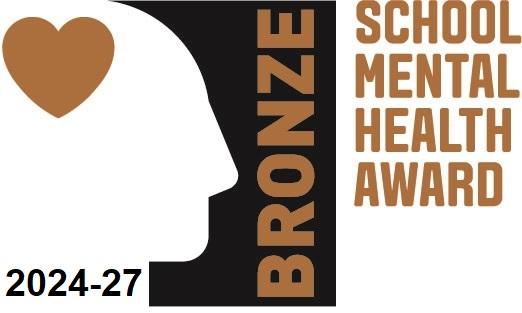Online Safety
Most of us are ‘connected’ via our laptops, consoles, handheld devices, mobile phones, tablets or personal computer. The potential for the internet to be a valuable and a fun resource for entertainment, making friends, keeping in touch and learning is huge. However, if you use the internet, you could be at risk of illegal activity or abuse - be it bullying, fraud or something more serious. Unlike seeing someone face to face, on the net, people are not always what they first seem.
In the same way you learn about safety when you leave the house, it is important to learn how to stay safe online.
Kingsmead School takes internet safety extremely seriously. Students are made aware of the steps we take to ensure their safety when working on-line in school, as well as working with the police to investigate the rare instances where young people endanger the safety and wellbeing of others, through misuse of electronic communication. You can read the 'Acceptable Usage of ICT Policy' by clicking the link below or visiting the 'About Us' section of the website.
We know that internet safety is a concern of many parents and there are a lot of useful resources and information available about keeping your children safe when they use the internet, mobile phones, or other devices connected to the Internet.
Parents are reminded that whilst the internet is a useful and effective learning tool, students should not be allowed to be on the internet unsupervised. Here are some tips to help you:
Ensure you are clear about what your child will be doing on-line and ask them to show you their work before and after internet use. Limit the use of additional features such as a web cam to when you are present in the room. Keep computers and laptops in family areas so that you are aware of the sites your child is using. Report any abuse or impropriety to the appropriate site authorities. Contact the Child Exploitation On line Protection (CEOP) authorities if there is any cause for concern.
KNOWN CONCERNS
Livestreaming - Staying safe online when broadcasting to an audience In the modern world many children and adults are seeing live streaming as a valid way of generating low start up income. The rise of YouTube, Twitch, Instagram, and other platforms, have opened up ways of making money that didn’t exist before. Now users are able to get opinions, views, and advice across to people all over the world, simply from your computer or laptop. There is no minimum age to these kinds of activities. And people that make a success of YouTube can be as young as primary age. However, this opens up opportunities for those who pray on these channels of under aged people. They encourage them and ultimately try to gain their trust. This requires those in the educational and safeguarding sphere to be able to give good advice to keep them safe whilst pursuing these online objectives. The Safer Internet Centre has produced a page dedicated to mitigating harm for those engaging in these online activities. For more information please click here.
OOVOO is a social media app children are downloading. This allows an individual with the app to search for anyone else who has the app even if they do not know them. For example, a search for 'Mel' brings up the contact details of anyone called Mel who also has the app. Police are very concerned because undesirable adults are using it as a means of contacting children/young people. This has already happened to a young female student in another school.
We advise that you make your child aware of the risk associated with this app and take steps to discourage children from using it.
The Blue whale Game is a dangerous game being played on social media. The Blue Whale game originated in Russia and is now spreading across Europe. The game is played online and spreads through social media. Players are appointed a “master/teacher" and these "masters/teachers" issue progressively more dangerous challenges to players in stages. As the game goes on the players are directed to self-harm and the final challenge is to commit suicide. All these actions have to be filmed and shared via social media to the so called "master/teacher". The game is being targeted at children of all ages, some as young as primary age, but predominantly at teenagers.
Warning signs to look out for may include:
-
Self-Harm, in particular any designs resembling a Blue Whale scratched onto the skin
-
The young person taking photos of their self-harm marks and objects used, and pictures taken of themselves at height
-
The young person setting alarms for the very early hours of the morning to watch scary/psychedelic movies
-
The young person leaving the house in the early hours of the morning
-
The young person frequenting high buildings, bridges or railway lines
The safety of your child is imperative to us as a school, and we hope that you will find this communication helpful in raising awareness. Please talk to your children and remind them to tell you about any games or messages on social media they are concerned about. Most children are happy to talk to adults as they can become very worried for themselves and others.
If you have any concerns regarding this 'game' or with any aspect of keeping children safe then please contact your child’s Head of year.
WhatsApp is one of the most popular messaging apps in the world, with more than 1.5 billion people in more than 180 countries using it to send and receive text, photos, videos and documents, as well as make voice and video calls through an Internet or Wi-Fi connection. The free app offers end-to-end encryption, which means that messages can only be read by the sender and the recipient in one-to-one chats, or all members if it is a group chat. Not even WhatsApp can read them.
Parent Info
In partnership with the National Crime Agency's CEOP, Parent Info is our parent-facing website addressing all of the issues amplified by the internet. Schools can register for free to host the content on their own website to ensure that parents have access to the most up-to-date information to support their digital parenting. Find out more here:
Helping you to better protect your child online
FOR FURTHER INFORMATION PLEASE VISIT THE LINKS AND DOWNLOADS BELOW
Useful Online Safety Guides
Artificial Intelligence Solutions
Emoji Support - What Parents/Educators need to know about Emojis
Helping Your Child Use AI Tools More Effectively For Home Learning
Keeping your Child Safe Online
Keeping your Child Safe Online Video
Manage Device Stress & Anxiety
Supporting your Child with their Fears & Worries
Tips for Encouraging Open Discussions about Digital Lives
What Parents/Carers need to know about iPads
What Parents/Carers need to know Spotify
What Parents/Carers need to know X
Other Useful Links
CEOP www.ceop.police.uk has some very useful resources for parents. it is quick and easy to register and you be sent regular updates on important information.
Kingsmead School ICT & Internet Acceptable Use Policy








